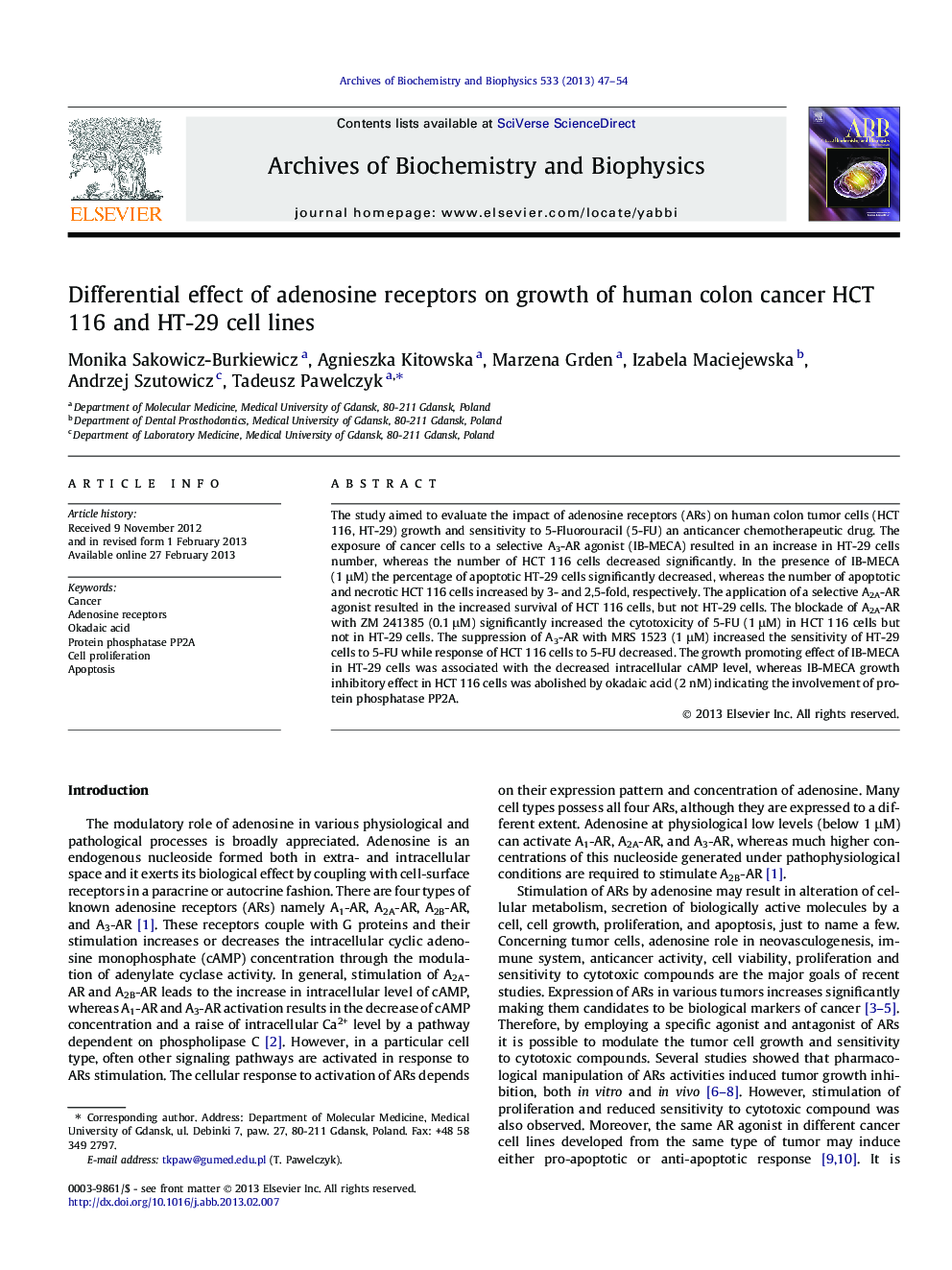| Article ID | Journal | Published Year | Pages | File Type |
|---|---|---|---|---|
| 1925357 | Archives of Biochemistry and Biophysics | 2013 | 8 Pages |
The study aimed to evaluate the impact of adenosine receptors (ARs) on human colon tumor cells (HCT 116, HT-29) growth and sensitivity to 5-Fluorouracil (5-FU) an anticancer chemotherapeutic drug. The exposure of cancer cells to a selective A3-AR agonist (IB-MECA) resulted in an increase in HT-29 cells number, whereas the number of HCT 116 cells decreased significantly. In the presence of IB-MECA (1 μM) the percentage of apoptotic HT-29 cells significantly decreased, whereas the number of apoptotic and necrotic HCT 116 cells increased by 3- and 2,5-fold, respectively. The application of a selective A2A-AR agonist resulted in the increased survival of HCT 116 cells, but not HT-29 cells. The blockade of A2A-AR with ZM 241385 (0.1 μM) significantly increased the cytotoxicity of 5-FU (1 μM) in HCT 116 cells but not in HT-29 cells. The suppression of A3-AR with MRS 1523 (1 μM) increased the sensitivity of HT-29 cells to 5-FU while response of HCT 116 cells to 5-FU decreased. The growth promoting effect of IB-MECA in HT-29 cells was associated with the decreased intracellular cAMP level, whereas IB-MECA growth inhibitory effect in HCT 116 cells was abolished by okadaic acid (2 nM) indicating the involvement of protein phosphatase PP2A.
► We evaluated the impact of adenosine receptors on human colon cancer cells growth. ► Cytotoxicity of 5-FU is differentially modulated by adenosine receptors. ► The effect of A2A-AR on HCT 116 cells growth does not depends on cAMP/PKA signaling. ► The growth inhibitory effect of IB-MECA in HCT 116 cells required PP2A activity.
